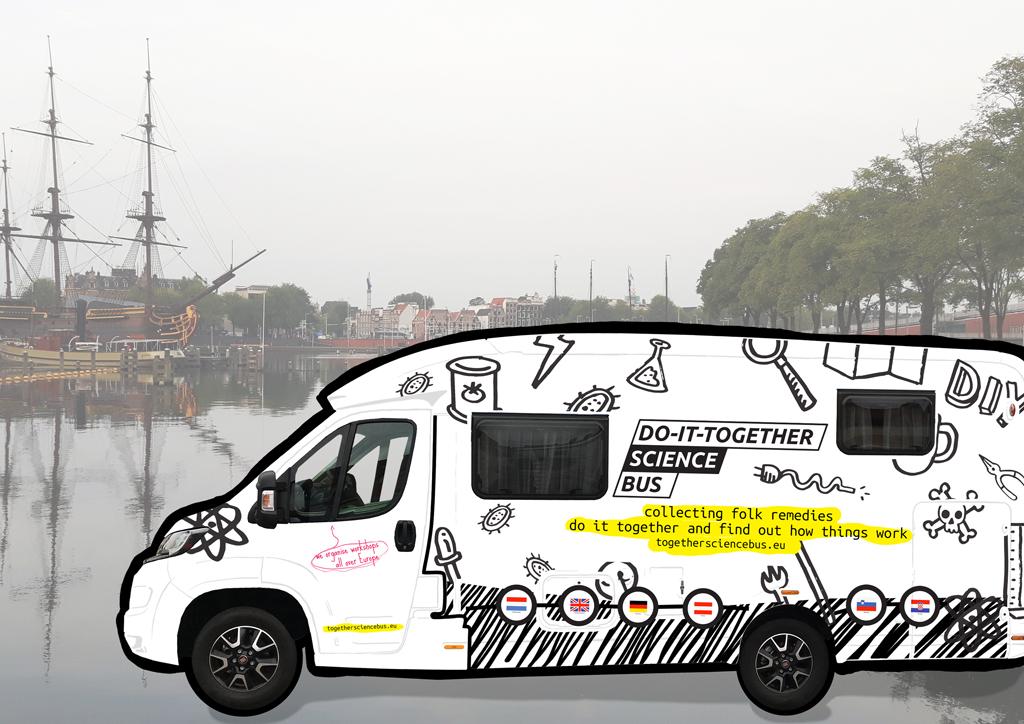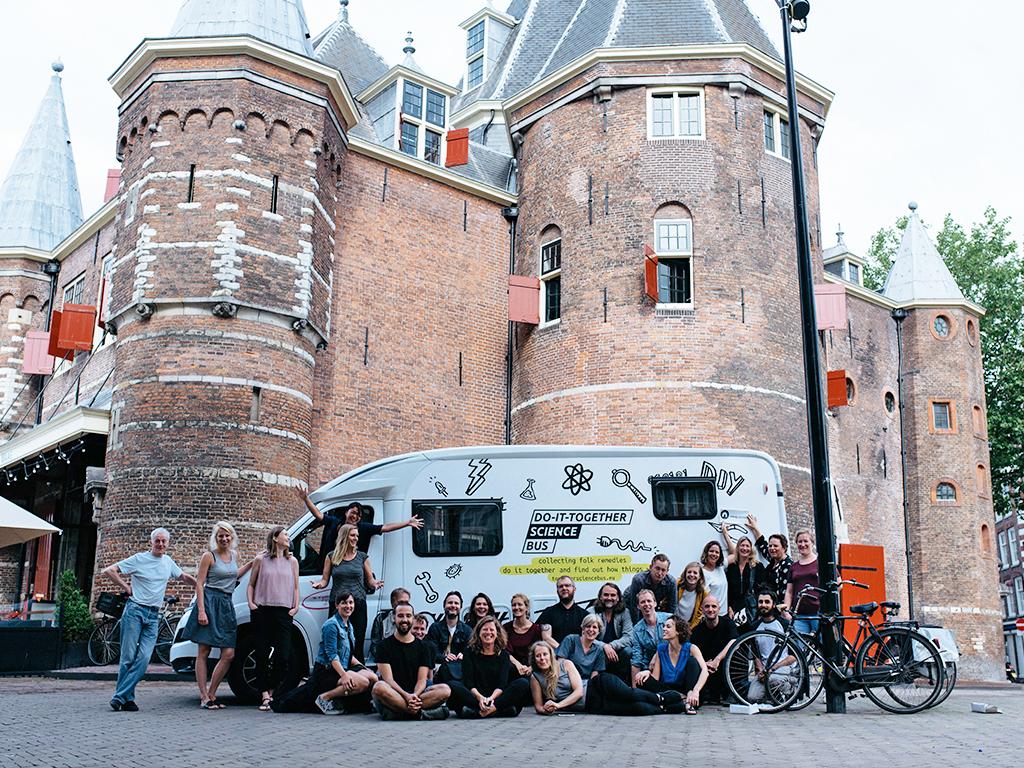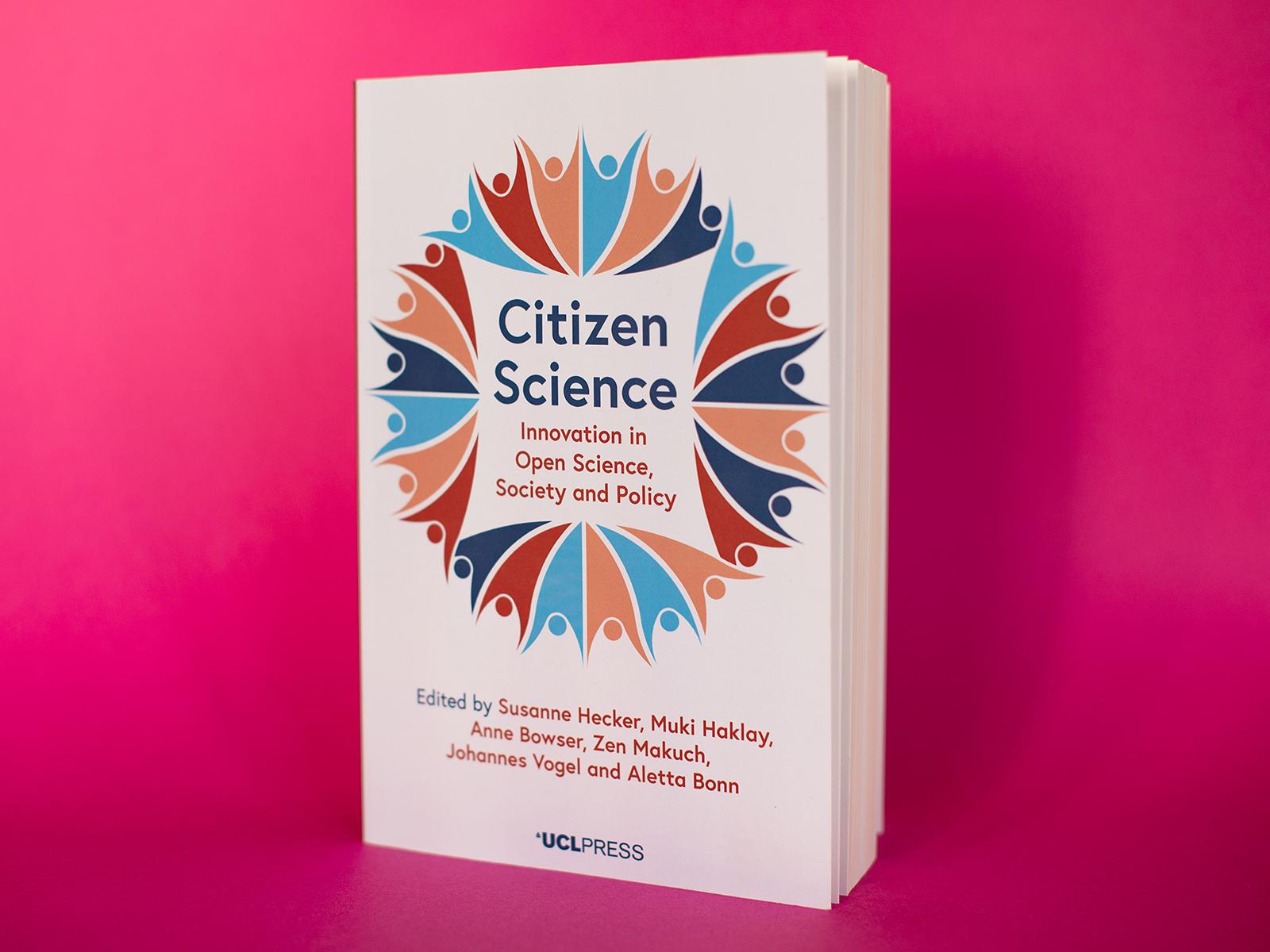Bus-, science-, DIY-lovers, children and other curious minds, all are very welcome at the kick-off of the European tour of the Science Bus. Join us for an afternoon filled with workshops before we see the Science Bus off to its first (overseas!) destination! The festive start will take place on the July 13th from 3 pm on the Marineterrain in Amsterdam.
During this afternoon our Science Bus captains will host their first workshops for you. Be prepared to make your own soap and sunscreen! After an opening speech by Marleen Stikker, president of Waag, we will cheers on a save journey and see the Science Bus and its crew off.
Program
15:00 - 16:30 Science Bus workshops at Marineterrein
16:30 – 19.00 Amsterdam Smart City Summer Drinks
17:00 - Speech by Marleen Stikker
17:30 - Official start of the Science Bus tour
Participating to the workshops is free. Reserve your spot via the form below. Workshops will be in english and dutch.
The Science Bus
Until November 2017 the Science Bus will travel through Europe bringing workshops and tools to investigate the world around you. How can you charge your phone when there is no socket around? Do you know what lives in your yogurt? And can you make your own sunscreen? We want to find out, with you! The Science Bus is in search of folk remedies. An everyday trick or ‘life hack’ that everyone can use to make or fix just about anything. By combining old knowledge with new technologies we want to make these clever folk remedies accessible to everyone.
A special thanks to Amsterdam Smart City for co-organizing this event.
Doing It Together Science
The Science Bus is part of the European project, “Doing It Together Science.” Within this project, research institutions work together with science galleries, museums and art institutions to engage as many people as possible with citizen science. By hosting innovative workshops, exhibitions and activities all around Europe the eleven partners show that citizen science is an accessible and fun way to explore the world around you.
This project has received funding from the European Union’s Horizon 2020 research and innovation programme under grant agreement no. 709443.


